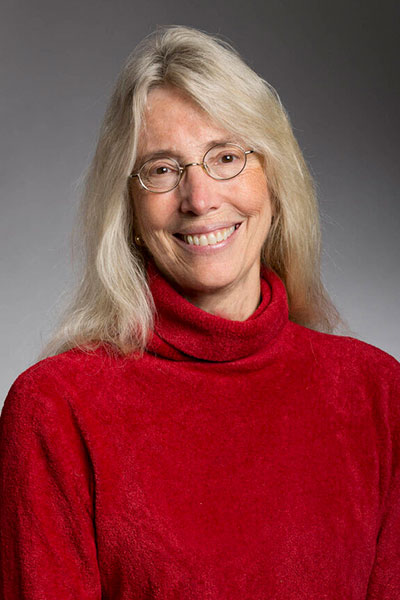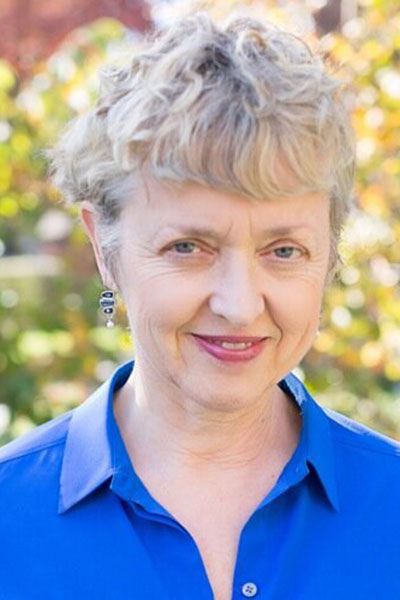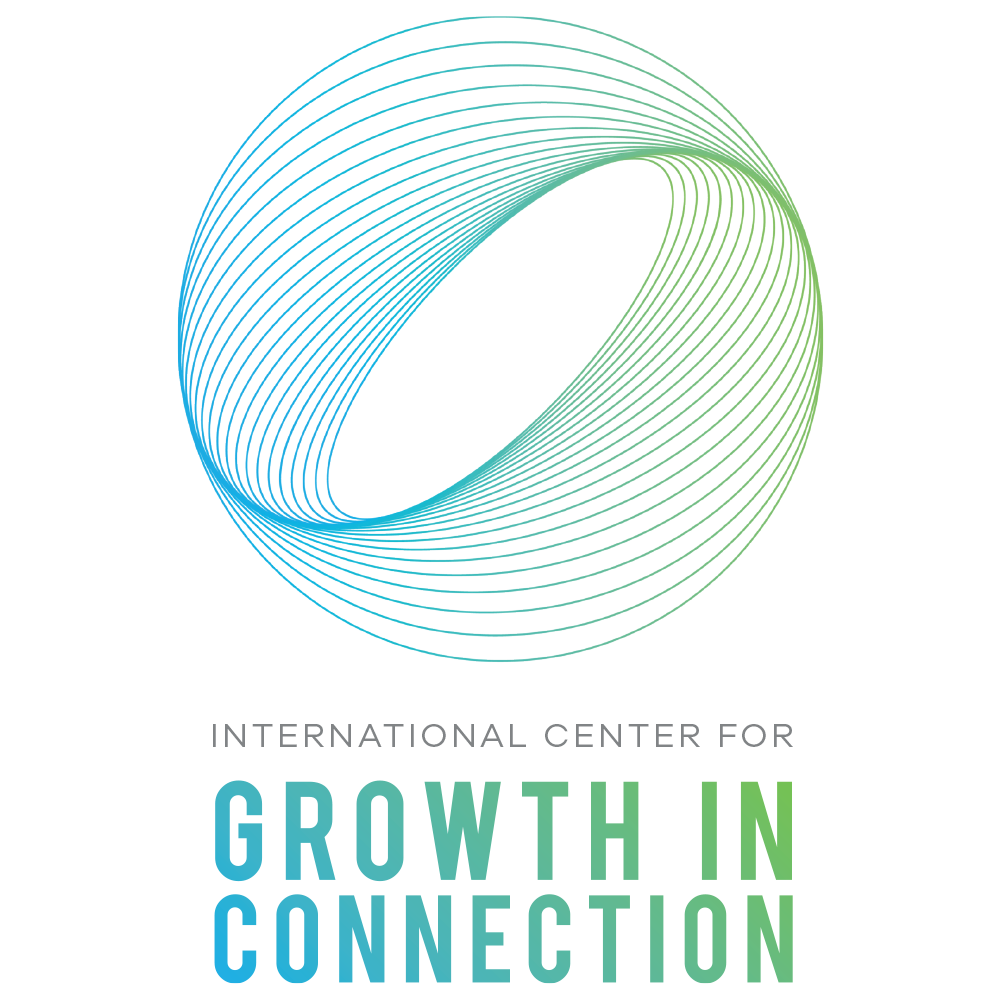About ICGC
Mission
As scholars, writers, clinicians, educators and activists, we promote Relational-Cultural Theory, an established body of scholarship that honors human connection as the anchor of all personal and social change, and enhances the capacity for healthy human development.
Vision
We envision a world in which the dominant value of hyper-individualism—leading to fear and isolation—is replaced by the widespread recognition that true progress lies in the power of our connections to one another and our environment.
Meet Our Team

Judith V. Jordan, Ph.D.
Judith V. Jordan, Ph.D. is the Founding Director of the International Center for Growth in Connection. She was an original founding scholar of the Jean Baker Miller Training Institute and is one of the creators of the nationally recognized psychological theory known as Relational-Cultural Theory. Dr. Jordan is an assistant professor of psychiatry at Harvard Medical School. After graduating Phi Beta Kappa and magna cum laude from Brown University, she earned her Ph.D. in clinical psychology at Harvard University where she received commendation for outstanding academic performance. She was the director of Psychology Training as well as the director of the Women’s Studies program at McLean Hospital. For over 30 years she has worked with her colleagues, the late Jean Baker Miller, the late Irene Stiver, and Jan Surrey on the development of what has come to be known as the relational-cultural model of development.
Dr. Jordan authored the book Relational-Cultural Therapy in 2010 (second edition, 2018) as part of the American Psychological Association’s “Theories of Psychotherapy” series. Dr. Jon Carlson, series co-editor, lauded Relational-Cultural Theory as “One of the ten most important psychological theories today.” Dr Jordan co-authored the book Women’s Growth in Connection and edited Women’s Growth in Diversity, The Complexity of Connection, and The Power of Connection. She has published over forty original reports (many as Works in Progress at the Stone Center of Wellesley College) twenty-five chapters, and co-authored three books.
Dr. Jordan is the recipient of the 2010 Distinguished Psychologist Award from the American Psychological Association “in recognition of her outstanding accomplishments and significant lifetime contributions to the field of psychotherapy”; this award is given to one American or Canadian psychologist each year. She also received the Massachusetts Psychology Association’s Career Achievement Award for Outstanding Contributions to the Advancement of Psychology as a Science and a Profession. She was selected as the Mary Margaret Voorhees Distinguished Professor at the Menninger School of Psychiatry and Mental Health Science in the Spring of 1999. She received the annual psychiatric resident’s “outstanding teacher of the year” award at McLean Hospital and is included in Who’s Who in America. She was awarded an honorary Doctor of Humane Letters from New England College (2001) with “utmost admiration for her contribution to science and the practice of psychology.” Dr. Jordan also received a Special Award from the Feminist Therapy Institute “in recognition of outstanding contributions to the development of feminist psychology” (2002). She is on the editorial board of the Journal of Clinical Psychology: In Session and the Journal of Creativity and Mental Health. She has written, lectured, and conducted workshops nationally and internationally on the subjects of women’s psychological development, gender differences, empathy, psychotherapy, marginality, mutuality, courage, the power of, women’s new models of leadership, and the Relational-Cultural model of human development and clinical practice.
Dr Jordan believes the existing structures of psychology characterized by a Separate-Self model of development are destructive to women and to the fabric of community for all people. By carefully studying women’s lives and women’s struggles, she is creating new models of human development which hopefully will help transform the destructive social impact of endless competition, hyper-individualism, racism, sexism, heterosexism, and classism. The practice of mutual empathy, at the core of relational-cultural theory, promotes personal wellbeing and contributes to the development of social justice. Placing relationships, not selves, at the center of our understanding of human growth changes everything.

Dr. Amy Banks
Dr. Amy Banks is a psychiatrist, speaker, writer and educator dedicated to spreading the scientific knowledge that people need healthy human relationships for emotional and physical growth and well-being and that promoting a culture of individualism and power over others leads to chronic stress and chronic disease.
Amy’s latest book (now available in pre-sales through Regal House Publishing), Fighting Time is a collaboration with Mr. Isaac Knapper. Fighting Time, a memoir in two voices, shares the story of Mr. Knapper’s wrongful conviction in the murder of Amy’s father, Dr. Ronald Banks, in 1979. He served twelve years of a life sentence in Angola State Penitentiary when he was sixteen years old. After meeting in 2015, they have maintained a healing connection and are invested in educating people about the impact that systemic racism and wrongful convictions have on both the wrongfully convicted and the family of murdered victims. Learn more about Amy and her work HERE.
Amy is the first person to bring Relational-Cultural Theory together with interpersonal neurobiology and is the foremost expert in the combined field. She has spoken nationally and internationally on the “neurobiology of relationship” and is a popular interviewee on the topics of loneliness, friendship and the neuroscience of relationship having been quoted for articles in The New York Times, O Magazine, Health Magazine to name a few. Her blog, “Wired to Love” is published on-line at Psychology Today.
Amy is the creator of the C.A.R.E. Program (featured in her 2016 book with Leigh Ann Hirschman, “Wired to Connect: The Surprising Link Between Brain Science and Strong Healthy Relationships”) an easy to use, practical guide to help clinicians and lay people assess the quality of their relationships and strengthen their neural pathways for connection.
Amy is a founding member of Relationships First, an intimate group of prestigious scientists and cultural leaders who are promoting the idea that “healthy relationships are non-negotiable in a healthy society”. She is the co-editor of “A Complete Guide to Mental Health for Women” published in 2004 by Beacon Press and is the author of the popular manual, “PTSD: Relationships and Brain Chemistry” published in 2001. She has authored numerous articles and book chapters on Relational-Cultural Theory, the neurobiology of trauma and the neurobiology of relationship.
Amy has a clinical practice as a therapist and psychopharmacologist focusing on the treatment of clients who have suffered from chronic disconnections as a result of trauma, interpersonal violence and abuse. Prior to her full time private practice, Amy’s clinical skills were enhanced as the Psychiatrist–in-Charge of the Women’s Treatment Program at Mclean Hospital, a psychiatrist for the Victims of Violence Program at Cambridge Health Alliance and the Medical Director for Mental Health at the Fenway Community Health Center. She currently holds a position on the clinical excellence board for the Renfrew Centers for Eating Disorders in Philadelphia, PA.

Dr. Maureen Walker
Dr. Maureen Walker is a licensed psychologist, speaker, educator, and writer who helps people bridge cultural differences such as race, religion, gender and other social status markers.
Her story begins with growing up in the racial apartheid culture of 1950’s and 60’s Augusta, Georgia. She attended racially segregated, under-resourced schools where, she says, her mind was tended by women and men for whom teaching was a calling, a sacred duty. She graduated from Mercer University with degrees in Vocal Performance and English, and then taught for eight years in the Georgia public schools, where many of the norms of Old South segregation persisted. Although her formal role was to teach English literature, “giving back” meant helping young people of all races as they faced the complexities of evolving cultural realities.
In 1991, with a newly minted Ph.D., Maureen moved to New England to become a staff psychologist in the MBA Counseling Service at Harvard Business School. She served in various roles during her 25-year career at Harvard, where her work always involved helping young professionals from many countries and multiple ethnicities thrive in an academically rigorous and culturally complex environment.
As the Director of Programming for the Jean Baker Miller Training Institute at Wellesley College, Maureen has enjoyed the colleagueship of such pioneering scholars as Jean Baker Miller, Janet Surrey, Judith Jordan, and Irene Stiver, with whom she contributed to the development of the Relational-Cultural model of psychological healing and development.
Her current work consists of multiple strands. She continues to offer psychotherapy to clients through her private practice. At the International Center for Growth in Connection (ICGC, she serves on the core team and also provides training and supervision. She has developed curricula and certification programs in Relational-Cultural psychology and has written a book When Getting Along Is Not Enough: Reconstructing Race in Our Lives and Relationships (November 2019) that provides practical insights and guidance for repairing the racial schisms that undermine authentic relationships in the 21st century. Learn more about Maureen and her work HERE.

Harriet L. Schwartz, Ph.D.
Harriet L. Schwartz, PhD is the author of Connected Teaching: Relationship, Power, and Mattering in Higher Education (Stylus, 2019). She is at the forefront of applying Relational Cultural Theory (RCT) to teaching and learning in higher education. Her scholarly interests include teaching as relational practice, emotion and teaching, and qualitative research methods. Harriet is ICGC’s Lead Scholar for Education as Relational Practice.
Harriet serves as Professor of Relational Practice and Higher Education for Antioch University’s PhD in Leadership and Change program. Prior to joining the faculty at Antioch, Harriet taught in leadership, education, counseling, and student affairs programs at Carlow University. She began her higher education career in student affairs and student support, first at the University of Hartford, and then Bard College and later Carnegie Mellon University.
Harriet is currently working on a book on Constructivist Critical Incident Technique (CoCIT), a qualitative research method. She has published two New Directions for Teaching and Learning sourcebooks, co-editing Teaching and Emotion and editing Interpersonal Boundaries in Teaching and Learning. She has published numerous book chapters and journal articles. Harriet is a frequent presenter and keynote speaker at regional and national conferences and enjoys visiting with Connected Teaching faculty book clubs and providing faculty and staff development workshops. As a public scholar, Harriet has written about racism, sexism, and homophobia, publishing in spaces such as Pittsburgh’s Public Source and Medium.

Myriam Barenbaum, LCSW-R, MPH
Myriam Barenbaum, LCSW-R, MPH, is the daughter-in-law of Jean Baker Miller, and the only other female member of the Miller family. She is deeply committed to helping to bring Jean’s and RCT’s work forward in the world.
Myriam is a clinical social worker with a private practice in Nyack, NY. She has been a therapist at The Trager Lemp Center for Treating Trauma and Promoting Resilience in Yonkers, NY for the past decade. She also runs a weekly program for domestic violence survivors, currently via Zoom, due to the Covid19 pandemic. Relational cultural theory is foundational to all of her relationships, both professionally and personally.
Our History
The International Center for Growth in Connection (ICGC) is an outgrowth of four decades of research and practice in Relational-Cultural Theory (RCT). Learn more about how this important work began, our founders, and explore key events in our history.

